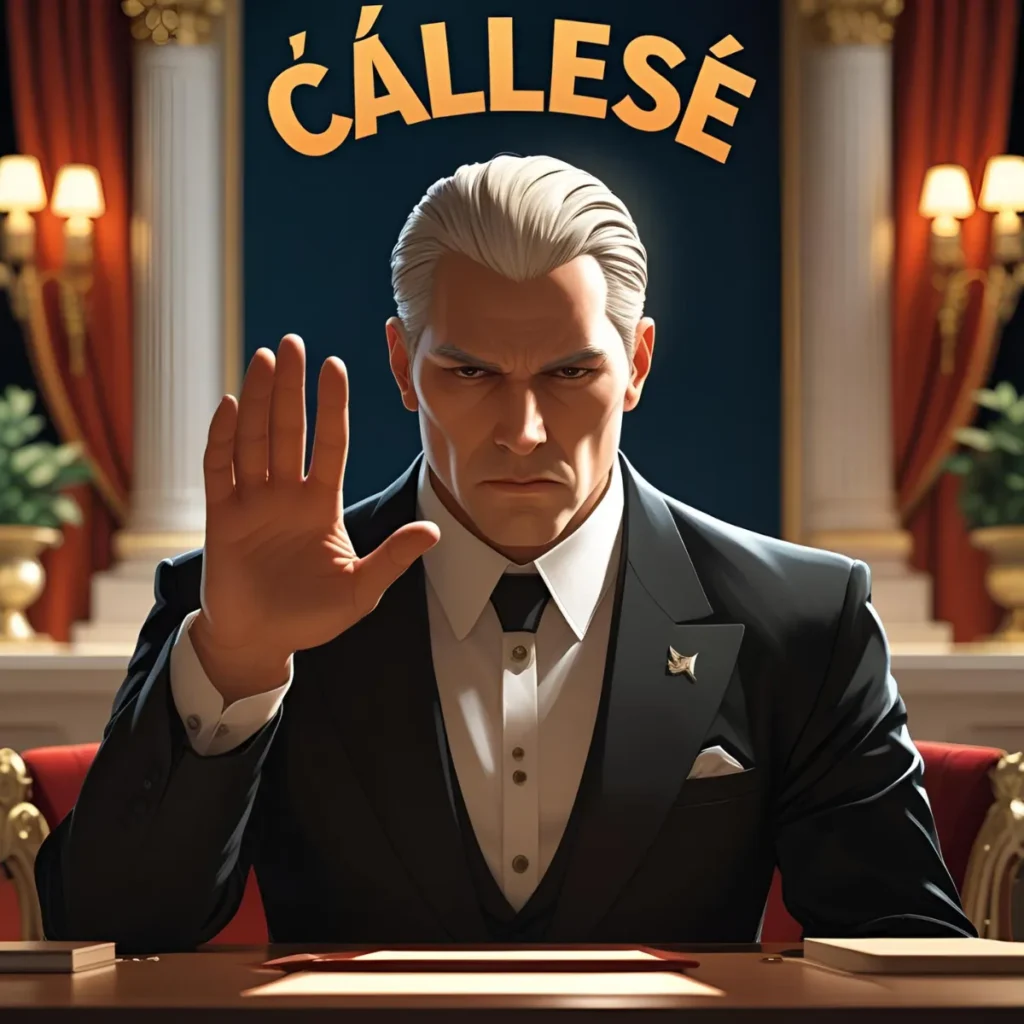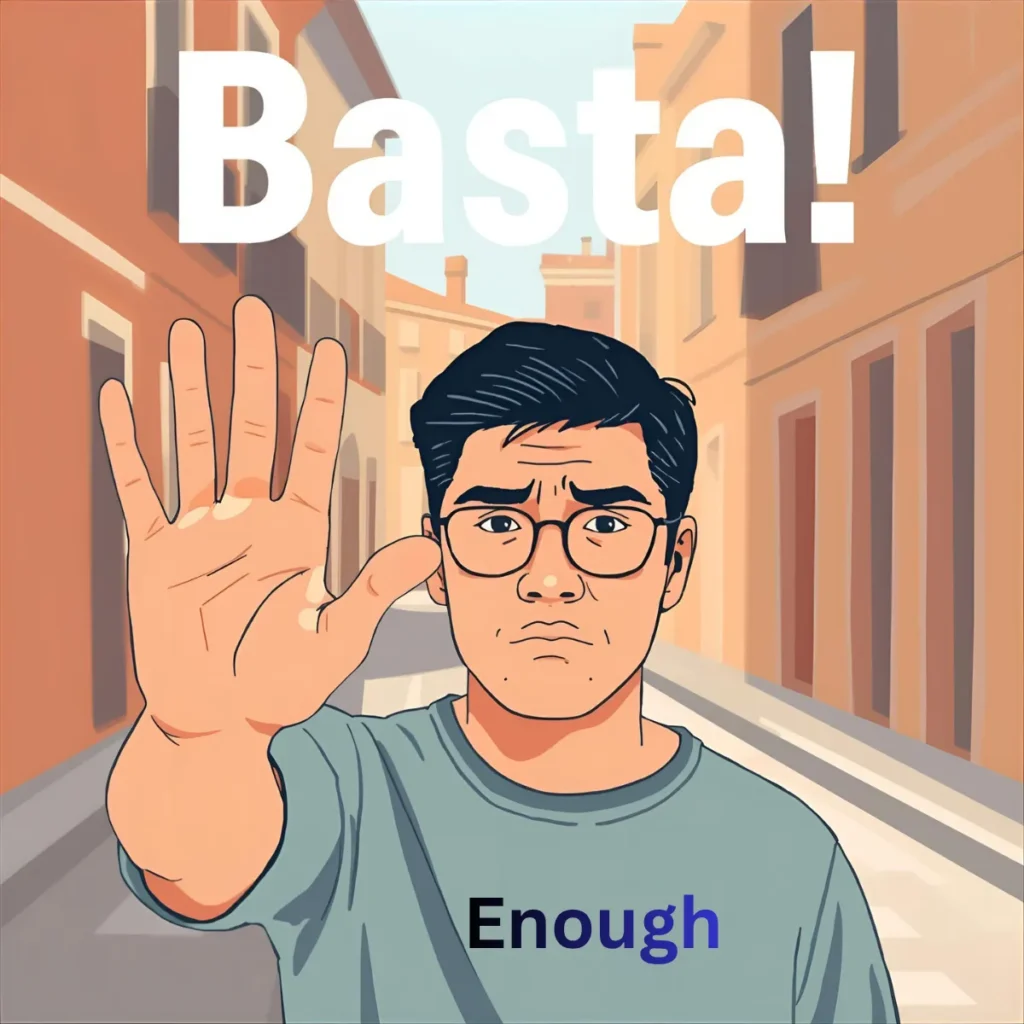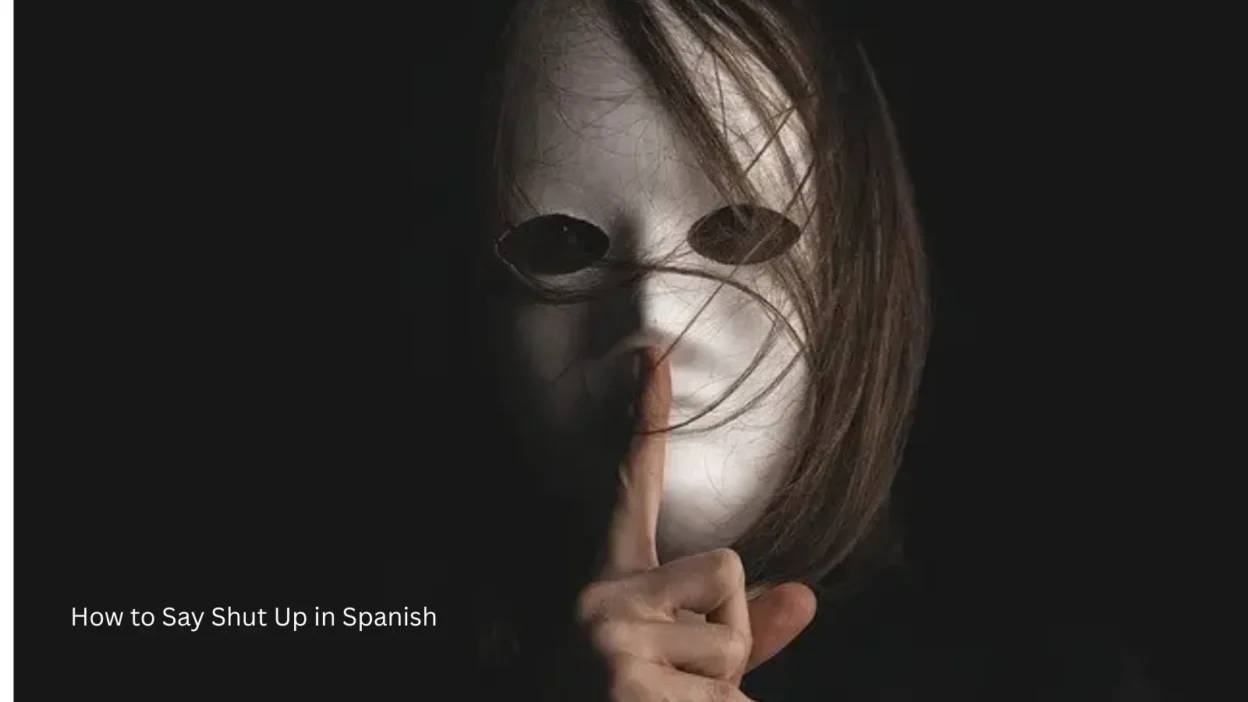Learning how to say shut up in Spanish can be useful in casual conversations, jokes, or playful teasing—but it’s important to use it carefully. The most common way to say “shut up” in Spanish is “cállate.” This word can sound strong or rude if used in the wrong situation. So, it’s better to understand the tone and when it is okay to use it.
In friendly situations, it can sound funny, but in serious situations, it can sound disrespectful.
Always pay attention to the mood of the conversation.
Using the phrase correctly will help you avoid misunderstandings and stay polite.
Say Shut Up in Spanish
Here are 15 authentic ways to say shut up in Spanish, complete with real-world dialogues and background on when (and when not) to use them.
15 Ways to Say Shut Up in Spanish (with Meaning & Usage)
| # | Spanish Phrase | Meaning in English | Use / Tone |
|---|---|---|---|
| 1 | Cállate | Shut up / Be quiet | Common, direct, can be rude depending on tone. |
| 2 | Cállense | Everyone be quiet | To a group of people. |
| 3 | Silencio | Silence | Neutral, used in classrooms or formal settings. |
| 4 | Silencio, por favor | Silence, please | Polite version. |
| 5 | Guarda silencio | Keep quiet | Polite but firm. |
| 6 | Basta | Enough! | When someone is being annoying. |
| 7 | Ya cállate | Stop, shut up already | Annoyance / frustration. |
| 8 | Cállate la boca | Shut your mouth | Very rude / harsh. |
| 9 | Deja de hablar | Stop talking | Serious but not rude. |
| 10 | No hables más | Don’t talk anymore | Calm but firm. |
| 11 | Shhh | Shh | Universal quiet gesture. |
| 12 | Tranquilo / Tranquila | Relax / Calm down | Friendly / Soft tone. |
| 13 | Baja la voz | Lower your voice | For loud people. |
| 14 | No digas nada | Don’t say anything | Neutral, quiet request. |
| 15 | Cierra el pico | Shut it / Zip it | Slang, informal, slightly rude. |
1. ¡Cállate! – “Shut up!”
Origin:
From the verb callar, meaning “to be quiet.” This is the direct, standard command form used widely in Spanish-speaking countries.
Example:
👤 User A: ¡No me dejas pensar!
👤 User B: ¡Cállate, por favor!
Use: Neutral to harsh, depending on tone. Common in arguments.
2. Cállese – “Shut up” (formal)

Origin:
This is the formal version of ¡Cállate!, using usted instead of tú.
Example:
👤 User A: Disculpe, ¿puede bajar la voz?
👤 User B: ¡Cállese ya!
Use: Formal situations or addressing elders/strangers; often sounds extra aggressive due to its formality.
3. ¡Silencio! – “Silence!”
Origin:
Used in schools, churches, or public spaces. Common in announcements or commands.
Example:
👤 User A: (speaking during class)
👤 Teacher: ¡Silencio, por favor!
Use: Formal, authoritative; used in institutions or serious situations.
4. ¡Cállate la boca! – “Shut your mouth!”
Origin:
A stronger, more aggressive version of ¡Cállate!. Literally means “Shut your mouth.”
Example:
👤 User A: ¡Yo tengo razón!
👤 User B: ¡Cállate la boca y escucha!
Use: Rude and confrontational; use with caution.
5. ¡Basta! – “Enough

Origin:
Though not a direct translation, basta is used to cut off noise, complaints, or chaos.
Example:
👤 User A: ¡Es que tú siempre—!
👤 User B: ¡Basta! No más discusiones.
Use: Assertive; not limited to telling someone to shut up.
6. ¡Cierra el pico! – “Shut your beak!”
Origin:
Slangy and humorous. Pico = “beak”, often used playfully or sarcastically.
Example:
👤 User A: Bla bla bla…
👤 User B: ¡Cierra el pico, loro!
Use: Informal, joking or slightly rude.
7. ¡Cállate ya! – “Shut up already!”
Origin:
Adds ya (already) to increase the urgency or frustration behind the phrase.
Example:
👤 User A: ¿Y sabes qué más?—
👤 User B: ¡Cállate ya, por favor!
Use: Annoyed tone, informal.
8. ¡Deja de hablar! – “Stop talking!”

Origin:
A softer command than “shut up,” more about asking someone to stop rather than silence them.
Example:
👤 User A: Bla bla bla…
👤 User B: ¡Deja de hablar y escucha!
Use: Semi-polite; often used by teachers or parents.
9. ¡No digas nada! – “Don’t say anything!”
Origin:
Used to silence someone before they speak. Emphasizes secrecy or urgency.
Example:
👤 User A: ¿Quieres que te diga lo que pasó?
👤 User B: ¡No digas nada!
Use: Serious or secretive situations.
10. ¡Cállate un rato! – “Be quiet for a while!”
Origin:
Adds un rato (“a while”) to suggest temporary silence, not permanent.
Example:
👤 User A: Mamá, mamá, mamá…
👤 User B: ¡Cállate un rato, por favor!
Use: Casual, frustrated, often with kids.
11. ¡Chitón! – “Shh!” (Old-fashioned)

Origin:
An old Spanish interjection, like “Hush!” or “Shush!” in English.
Example:
👤 User A: ¿Y qué pasó después?
👤 User B: ¡Chitón! Ya viene.
Use: Rare and old-school; sometimes used for fun or in books/movies.
12. ¡Cállate, pesado! – “Shut up, you’re annoying!”
Origin:
Pesado means “annoying” or “a pain.” Often used among friends teasing each other.
Example:
👤 User A: ¡Te lo dije 100 veces!
👤 User B: ¡Cállate, pesado!
Use: Joking insult; informal.
13. ¡Shhh!
Origin:
Universal sound to quiet someone, used worldwide across languages.
Example:
👤 User A: (starts talking loudly in a movie)
👤 User B: ¡Shhh! Están viendo la película.
Use: Soft or public silencing gesture.
14. ¡Baja la voz! – “Lower your voice!”
Origin:
Less about complete silence, more about controlling tone or volume.
Example:
👤 User A: ¡ESTO ES INJUSTO!
👤 User B: ¡Baja la voz! Estamos en público.
Use: Polite but firm; useful in tense moments.
15. ¡Cállate la jeta! – “Shut your trap!” (Harsh slang)
Origin:
Jeta is slang for mouth, sometimes considered vulgar depending on the region.
Example:
👤 User A: No me importa tu opinión.
👤 User B: ¡Cállate la jeta!
Use: Very aggressive; heard in heated arguments or street slang (Mexico, Argentina).
FAQs
1. What is the most common way to say “shut up” in Spanish?
The most common phrase is “Cállate”, which means “Be quiet” or “Shut up.”
2. Is “Cállate” rude?
It can be, depending on tone. If you say it softly, it’s less harsh. If you shout it, it’s rude.
3. How do I say “Shut up, please” politely?
You can say “Por favor, guarda silencio” (Please, keep quiet).
4. How do I tell a group to be quiet?
Say “Cállense”, which means “All of you, be quiet.”
5. What’s a friendly or playful way to say “shut up”?
You can use “Ya, tranquilo/tranquila” meaning “Hey, relax.”
6. How do I say “Stop talking” in Spanish?
Say “Deja de hablar.”
7. How do I say “Be quiet” politely?
Use “Silencio, por favor.”
8. Can I use “Basta”?
Yes. “Basta” means “Enough!” (used when someone is being annoying).
9. What phrase do teachers often use in classrooms?
Teachers usually say “Silencio, por favor.”
10. What should I avoid because it’s too strong or rude?
Avoid “Cállate la boca” (Shut your mouth) — it sounds aggressive.
Conclusion:
Learning how to say shut up in Spanish can be useful when you want to express boundaries, stop noise, or handle situations where things get too much. Just remember to use these phrases politely and only when needed, because tone matters as much as words. When used respectfully, they help you communicate clearly and confidently. Practice them and choose the one that fits the situation best.



